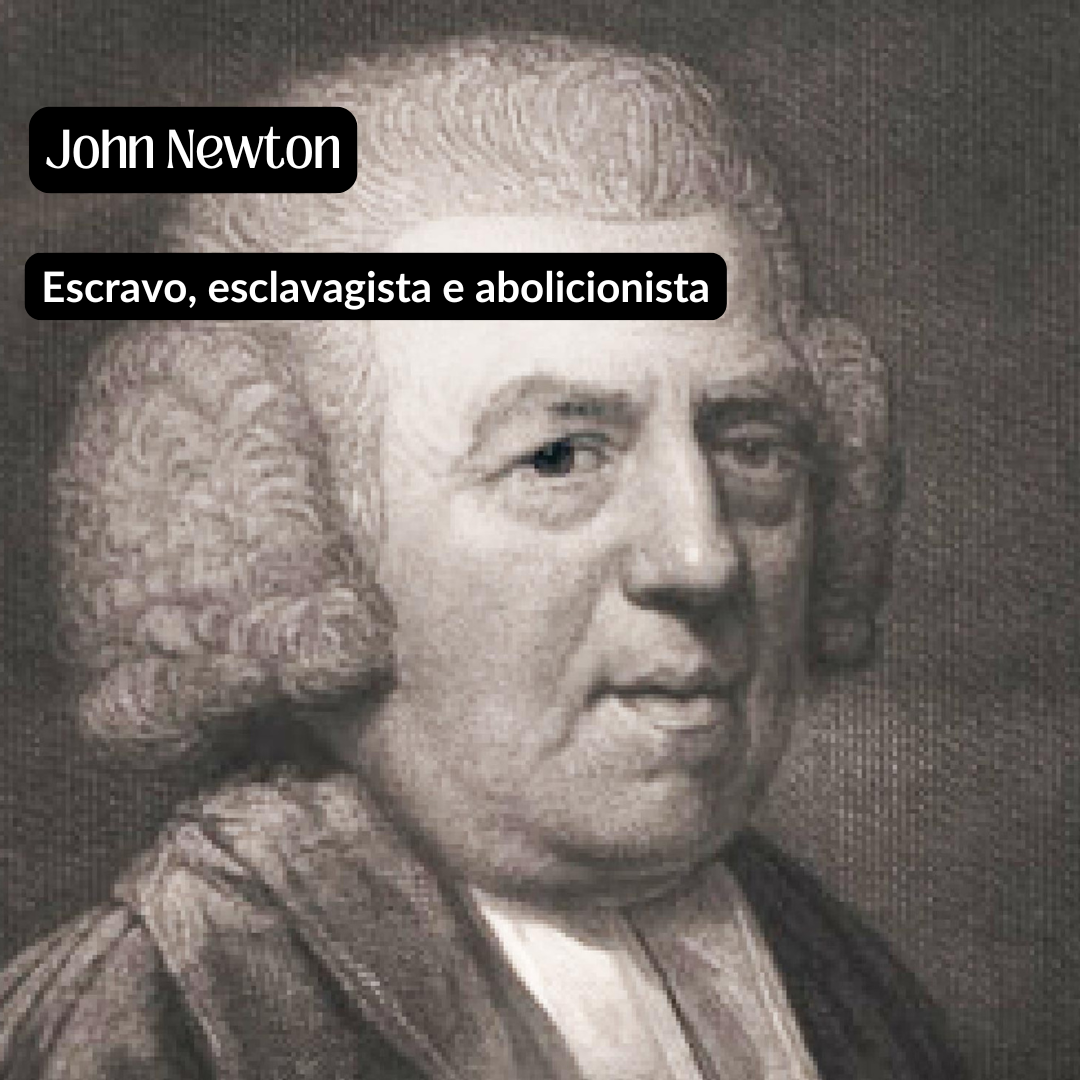John Newton

(English below)
John Newton (1725–1807) Nasceu em Londres, perdeu a mãe aos seis anos e começou a trabalhar no mar ainda jovem. Em 1745 trabalhou no primeiro navio negreiro,. Devido à sua indisciplina foi, na África Ocidental, entregue a um comerciante local de escravos como castigo. Durante dois anos, foi escravizado e submetido a maus-tratos.
Em 1748 foi resgatado por um navio britânico enviado pelo seu pai. Na viagem, durante uma violenta tempestade, Newton clamou a Deus por misericórdia e a tempestade extingui-se, marcando o início da sua jornada espiritual.
Dois anos depois, assumiu o comando do navio Duke of Argyle tornando-se comerciante de escravos da África para as Américas.
Quatro anos depois, após uma grave crise de saúde, Newton decidiu deixar o comércio de escravos. Trabalhou como oficial alfandegário. Aprofundou a sua fé cristã e em 1764 tornou-se pastor anglicano. Em 1772 escreveu “Amazing Grace”.
Passados 34 anos, de se retirar do tráfico de escravos, Newton quebrou o silêncio e em 1788 publicou o panfleto “Thoughts Upon the African Slave Trade”, no qual denunciava o tráfico de escravos e confessava o seu arrependimento.
“Eu não posso olhar para trás sem tremor… A minha culpa pareceu começar antes que eu soubesse o que estava fazendo.”
Nos anos finais da sua vida tornou-se um abolicionista fervoroso. Aliou esforços com William Wilberforce, líder do movimento pela abolição da escravatura no Império Britânico.
Newton viveu para ver o seu objectivo cumprido. No dia 1 de Maio de 1807, o Parlamento Britânico aboliu o comércio de escravos. Newton morreu a 21 de Dezembro do mesmo ano. “Amazing Grace” tornou-se um dos hinos mais icónicos do mundo ecoando a jornada de Newton: o poder transformador da graça divina que resgatou “um pecador perdido”.
“Não sou o que devo ser, não sou o que quero ser, não sou o que espero ser em outro mundo; mas, ainda assim, não sou o que costumava ser. Pela graça de Deus, sou o que sou.”
--
Slave, Slave Trader, and Abolitionist
Born in London, he lost his mother at the age of six and started working at sea while still very young. In 1745, he worked on his first slave ship. Due to his indiscipline, he was handed over as punishment to a local slave trader in West Africa, where he was enslaved and subjected to mistreatment for two years.
In 1748, he was rescued by a British ship sent by his father. During the voyage, in the midst of a violent storm, Newton cried out to God for mercy, and the storm subsided, marking the beginning of his spiritual journey.
Two years later, he took command of the ship Duke of Argyle, becoming a slave trader, transporting enslaved people from Africa to the Americas.
Four years later, after a severe health crisis, Newton decided to leave the slave trade. He worked as a customs officer and deepened his Christian faith. In 1764, he became an Anglican pastor. In 1772, he wrote Amazing Grace.
Thirty-four years after leaving the slave trade, Newton broke his silence. In 1788, he published the pamphlet Thoughts Upon the African Slave Trade, in which he condemned the trade and confessed his regret.
“I cannot look back without trembling… My guilt seemed to commence before I was aware of it.”
In the final years of his life, he became a fervent abolitionist, joining forces with William Wilberforce, the leader of the movement for the abolition of slavery in the British Empire.
Newton lived to see his goal achieved. On 1 May 1807, the British Parliament abolished the slave trade. Newton died on 21 December of the same year. Amazing Grace became one of the most iconic hymns in the world, echoing Newton’s journey: the transformative power of divine grace that saved “a wretch like me.”
“I am not what I ought to be, I am not what I want to be, I am not what I hope to be in another world; but still, I am not what I used to be. By the grace of God, I am what I am.”